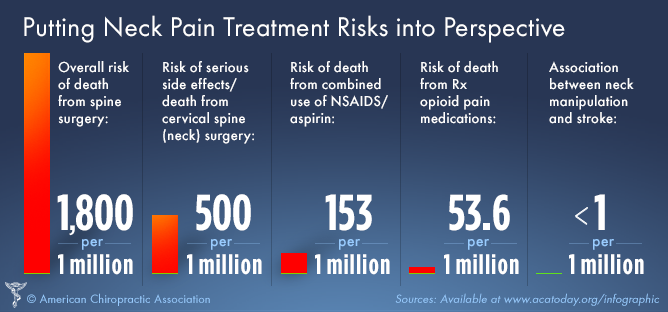The Impact Of Diet Plan On Neck And Back Pain Monitoring: Foods To Integrate And Foods To Omit
The Impact Of Diet Plan On Neck And Back Pain Monitoring: Foods To Integrate And Foods To Omit
Blog Article
Content Author-Cochrane Wheeler
When it comes to managing your pain in the back, the food options you make can dramatically impact just how you really feel on a daily basis. Envision having the ability to alleviate your discomfort just by readjusting what you eat. By recognizing the function of nutrition in back pain monitoring and understanding which foods to include or steer clear of, you can take positive actions towards a healthier and extra comfy way of life. The connection in between nourishment and back health is a lot more profound than you might realize-- let's check out exactly how certain foods can either relieve or worsen your neck and back pain.
Relevance of Nutrition in Pain In The Back
Nourishment plays a critical duty in handling pain in the back. Your diet regimen can dramatically affect swelling degrees and general discomfort degrees in your back. Taking in a well balanced diet regimen rich in nutrients like vitamins D and K, calcium, magnesium, and omega-3 fats can help in reducing inflammation and strengthen bones, which are vital for back health.
Additionally, maintaining a healthy and balanced weight via appropriate nourishment can reduce stress on your spine, lowering the danger of back pain.
Furthermore, particular nutrients like antioxidants located in fruits and vegetables can assist deal with oxidative anxiety and promote recovery in the body, including the back muscles and back.
On the other hand, eating excessive quantities of processed foods, sweet beverages, and undesirable fats can add to swelling and weight gain, intensifying back pain.
Foods to Consume for Back Health
To support a healthy back, including nutrient-rich foods into your daily dishes is vital. Consisting of foods high in antioxidants like berries, spinach, and kale can help reduce inflammation in your back, alleviating pain and discomfort. Omega-3 fatty acids located in fatty fish such as salmon and mackerel have anti-inflammatory residential properties that can profit your back health.
In addition, consuming nuts and seeds like almonds, walnuts, and chia seeds gives vital nutrients like magnesium and vitamin E, which sustain muscle mass function and decrease oxidative anxiety. Including lean proteins such as chicken, turkey, and tofu can help in muscle repair service and maintenance, advertising a strong back.
Do not forget to consist of dairy or fortified plant-based choices for calcium to support bone health. Finally, moisten with lots of water to maintain your spine discs hydrated and functioning efficiently. By consisting of these nutrient-dense foods in your diet regimen, you can nurture your back and support total back health and wellness.
Foods to Stay Clear Of for Neck And Back Pain
Go with preventing refined foods high in sugarcoated and trans fats when looking for remedy for pain in the back. These kinds of foods can contribute to swelling in the body, which might intensify neck and back pain. Say no to how much is acupuncture in nyc , pastries, and sweet drinks, along with fast food items like hamburgers, french fries, and fried hen that are commonly packed with trans fats.
Furthermore, stay away from foods consisting of high degrees of polished carbs, such as white bread, pasta, and pastries, as they can increase blood glucose levels and possibly get worse inflammation in the body.
It's additionally a good idea to limit your intake of foods high in saturated fats, like red meat and full-fat milk products, as they can contribute to swelling. Processed foods like deli meats, chips, and packaged snacks are commonly high in saturated fats and need to be consumed in small amounts.
Conclusion
Finally, taking note of your diet regimen and making wise food options can have a considerable impact on managing back pain. By incorporating nutrient-rich foods like berries, fatty fish, nuts, and lean healthy proteins, and avoiding refined and sweet items, you can help reduce swelling and support overall back wellness. Remember, what you eat plays a crucial function in exactly how you really feel, so make certain to prioritize your nourishment for a healthier back.
